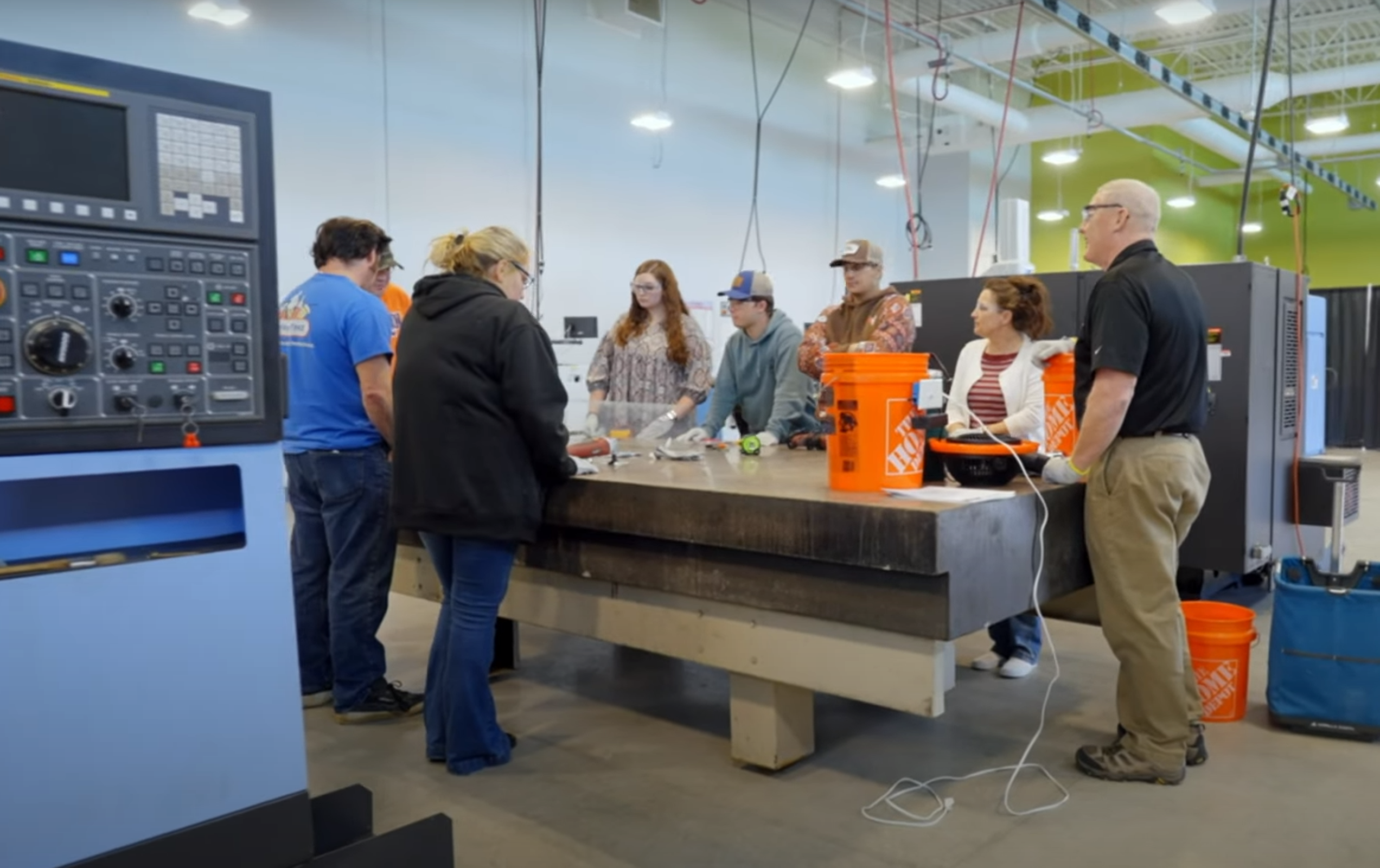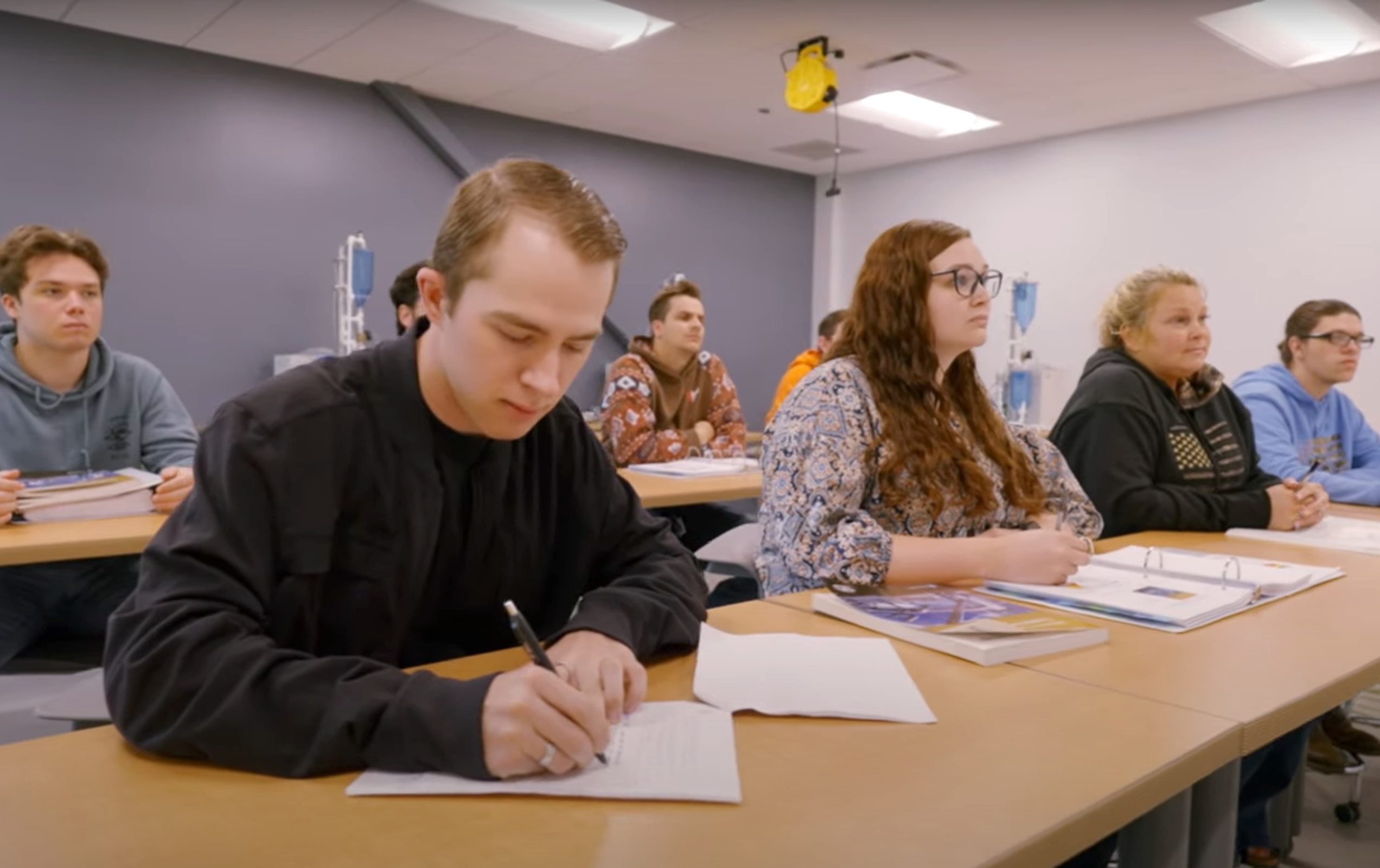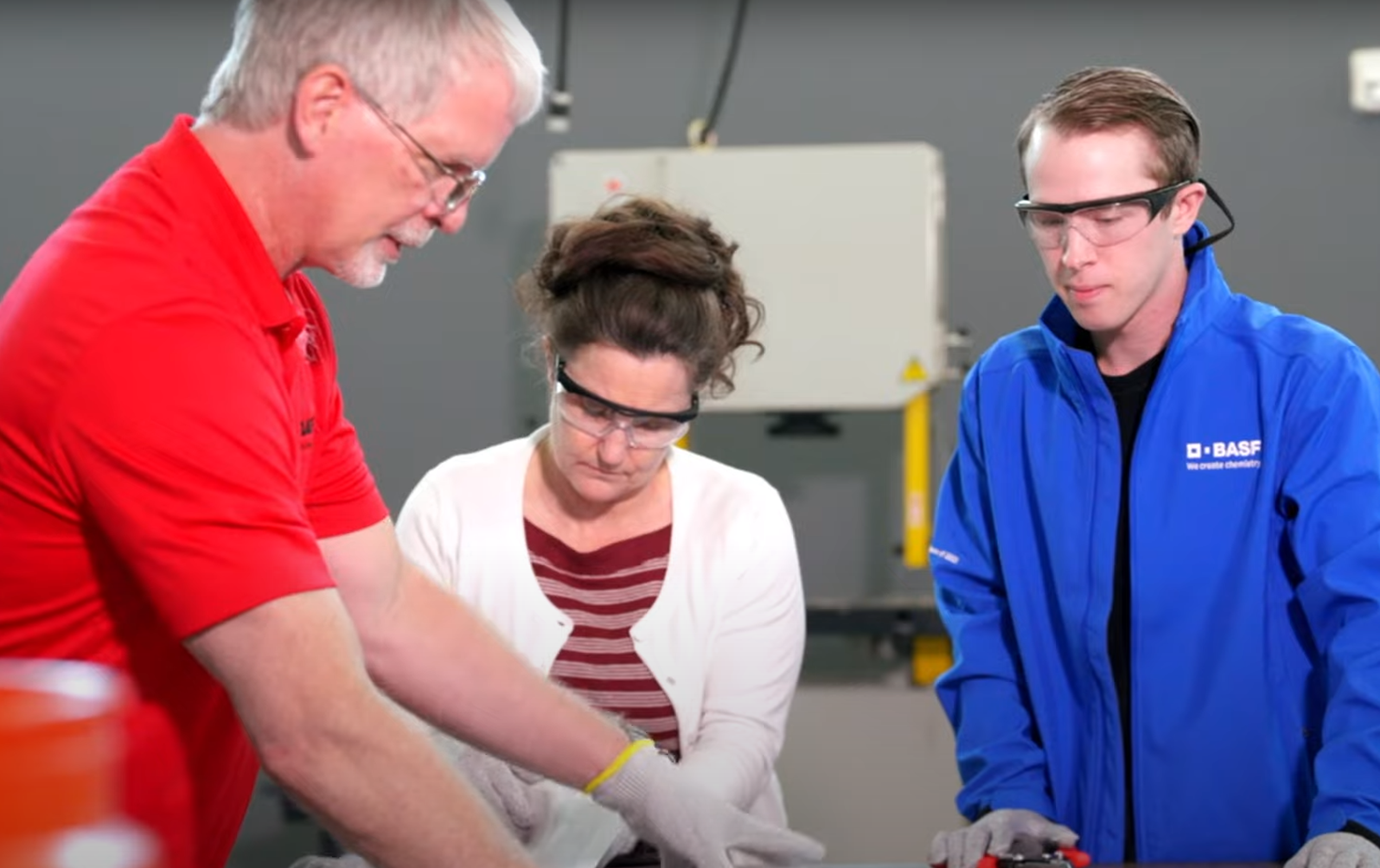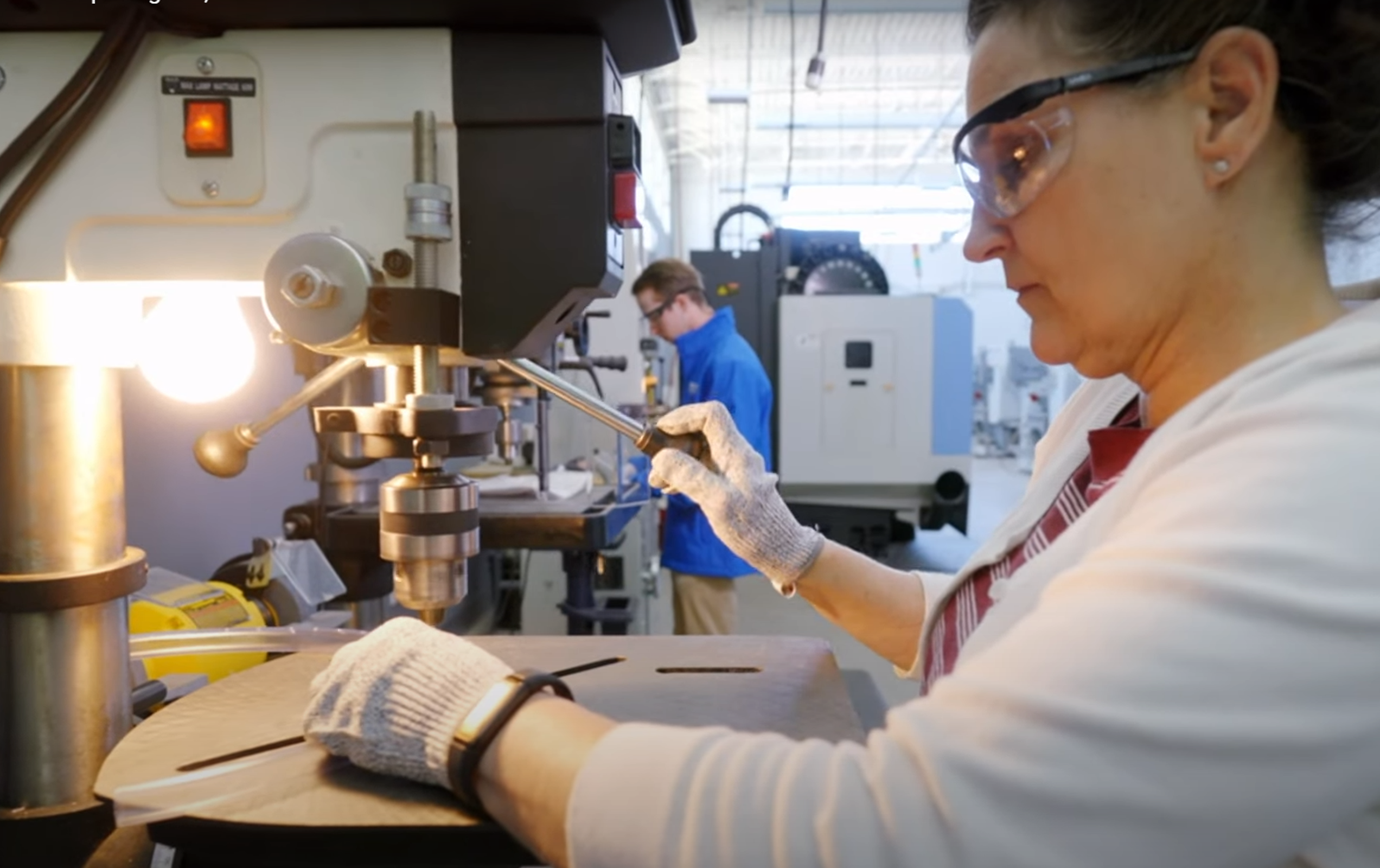Creating a New Career Pathway with BASF Apprenticeship
BASF, one of the world's leading chemical companies, is making strides not only in its manufacturing capabilities but also in creating new career opportunities for the local workforce in Seneca, South Carolina. With the help of Tri-County Technical College, Apprenticeship Carolina and readySC, BASF has created a pipeline of non-traditional talent for the facility through its apprenticeship program.
“We are actually just finishing a several million-dollar investment at the site in Seneca,” says Elba Alcadia Lizardi, BASF Seneca site director. “And as we were doing that, we were also going to grow our workforce.” BASF wanted to increase their personnel by offering something unique – an apprenticeship program that gives people the chance to step into the world of manufacturing with little to no prior experience.

“We want to make sure that we can bring in a workforce in our limited pool that we have in this area that don't have manufacturing experience and train them the way we need them to be trained. ”
— Gene Durrance, BASF Apprenticeship Coordinator
Charting a New Course
According to BASF Apprenticeship Coordinator, Gene Durrance, the goal of the apprenticeship program is to take individuals from diverse backgrounds and mold them into skilled workers through a combination of classroom education and on-the-job training. "We want to make sure that we can bring in a workforce in our limited pool that we have in this area that don't have manufacturing experience and train them the way we need them to be trained."
For BASF apprentice Morgan Suttles, a career in manufacturing didn’t seem possible until she was chosen for the apprenticeship. “Looking at someone coming in with no manufacturing experience, lots of times you're told no, but this gives you the stepping stones to say, ‘Hey, I can do manufacturing and this is why.’ These kinds of opportunities are important for people like me because we wouldn't be given the chance to work in these kinds of environments otherwise.”
When apprentice Jason Overfelt returned from military training, he realized that the apprenticeship represented an open door to a new future. “When I got back, I saw the opportunity and I figured it would be a good kind of way to get my foot in the door, learn something new and build off of it.”
A Win-Win Collaboration
The BASF Apprenticeship program became possible because of the cooperation of Tri-County Technical College (TCTC), Apprenticeship Carolina and readySC. Bryan Manuel, the Dean of Integrated Workforce Solutions at TCTC explains, “BASF actually approached the college saying, ‘We have this very specific need and we think that apprenticeship might be part of the solution.’”
Through collaborative efforts with TCTC to build the company-specific training, BASF worked with Apprenticeship Carolina to register the program with the US Department of Labor. To launch the first cohort, South Carolina’s readySC program helped with recruitment and provided assistance in the form of OJT reimbursement to the company, as well as delivering essential safety and skills training to new employees.
Apprenticeship Carolina also plays a pivotal role by providing funding support for the program, making it more accessible to aspiring individuals. Jason Overfelt appreciates that the apprentices are essentially being paid to learn. “On the days that I would have to go to class, I'd get that pay as my normal job day. So it was actually very nice.”

Finding a Perfect Balance
Now in its fourth cohort, the key to the apprenticeship’s success is balancing classroom sessions with hands-on experience. Says Gene Durrance, “We bring in these apprentices, train them in a classroom atmosphere to give them the understanding of the basics of manufacturing. And then we also teach them through full-time employment what they need to know at our site.”
"Our apprentices go to school for one year,” explains Elba Lizardi. “During that time period, they are full-time employees. They go to school one day a week, and the rest of the week, they are working at the site."
Bill Edge, an instructor/developer for readySC and TCTC, teaches the apprentices how to troubleshoot common plant problems while they are learning fundamental process technology topics. “The BASF Apprenticeship is not your typical college course. While there is a classroom portion, we try to make as much of a connection to the BASF plant as possible,” he says. “Our experiments are about real operating pieces of equipment with all the safety and operational consequences. So we have to be really creative in the classroom to gain full understanding of what they are doing at the plant.”
For apprentice graduate Vonda White, she likes that the things she’s learned in the classroom are directly applicable to her success on the job. “Being on the floor and understanding how those machines work together… I think it gave me a leg up.”
“The instructors try to make the material very relatable. I feel like there's a very strong connection between BASF and Tri-County Technical College”
— Morgan Suttles, BASF Apprentice
Changing Perspectives
Attracting a new generation of workers may require changing some outdated perspectives of what it means to work in today’s manufacturing environment. “People hear the word manufacturing and I think they get the idea that you're working on an assembly line doing the same mundane thing day after day after day,” says Vonda White. “Our plant is not set up that way.” She adds that apprentices get the opportunity to “learn some really neat things.”
Morgan Suttles was interested in a manufacturing position but wasn’t confident in her ability to do the work until training began. “The instructors try to make the material very relatable. I feel like there's a very strong connection between BASF and Tri-County Technical College,” says Suttles. “The training is definitely making me more confident in my abilities, especially with this being a new field for me.”

The Career of a Lifetime
The BASF Apprenticeship Program has proven to be a life-changing opportunity for those who might not have had the chance to work in such an environment otherwise. Morgan Suttles is grateful for the flexibility the program offers and that she doesn’t have to attend class outside of working hours. “Because of this apprenticeship, I am able to spend more time with my family because I can go to work during the day and come home to my kids. Having the apprenticeship built into my work schedule is very beneficial.”
“There is an enormous amount of fulfillment when I see the apprentices who are successfully completing with BASF knowing that they're at the start of a career that can span many, many years,” says TCTC’s Bryan Manuel.
Gene Durrance agrees. “I definitely am looking forward to the growth of the current apprentices and those that have already completed the program.”
For site manager Elba Lizardi, seeing the apprentices’ transformation is its own reward. “It has been really fun to see and hear their stories of where they came from, of why they came to us, how they feel this may have changed their lives.”
“I love my job,” declares Vonda White, who had been a bookkeeper prior to working at BASF. “I used to sit behind a desk and [now] I get to actually work with machines and I have all these benefits. I have health benefits. It's changed my life tremendously. Tremendously.”
Jason Overfelt sees personal growth along with his career development. “I was never a very outspoken person, but through the program and all the team building exercises that we've done through the class, I've been able to speak up more and actually share ideas more. Personally, I think it's helped me grow a lot.”
“There is an enormous amount of fulfillment when I see the apprentices who are successfully completing with BASF knowing that they're at the start of a career that can span many, many years.”
— Bryan Manuel, Tri-County Technical College
Success Starts Here
Apprenticeship offers long-term benefits to both the company and the apprentice. For BASF, an unexpected positive aspect is that the apprentices provide a new perspective to the company. “They bring to us a different mindset,” says Gene Durrance. “They look at things in a different viewpoint and a lot of times they come up with ideas that we just maybe didn't think of before.”
The apprenticeship offers many advantages to those who go through the program, including helping to realize personal goals. “This program has benefited me because I've been able to do things that I wouldn't have been able to [otherwise],” says Jason Overfelt. “I've been able to get a new car and I've actually been able to move out from my parents’ quicker than I thought I'd be able to.”
Vonda White appreciates being given the chance to make a career change later in life. “My life is very different and I like it a lot. And I wouldn't have had that opportunity had I not taken a leap of faith and applied for the apprenticeship program.”

Morgan Suttles agrees. “I'm really grateful for the opportunity to be a part of the apprenticeship. It's a very valuable experience for me and I would recommend it to anybody that's looking for a change or coming right out of school or wanting to start over.”
Through the collaborative efforts of BASF, Tri-County Technical College, Apprenticeship Carolina and readySC, the BASF Apprenticeship Program has become a beacon of hope for individuals seeking a fresh start in their careers. This initiative has successfully bridged the gap between aspiring workers and the manufacturing industry, proving that with the right training and opportunities, anyone can thrive in a new field.